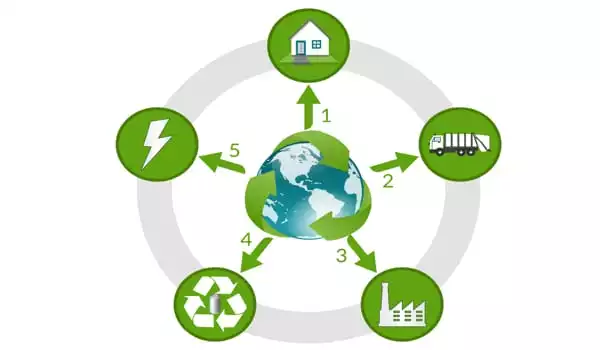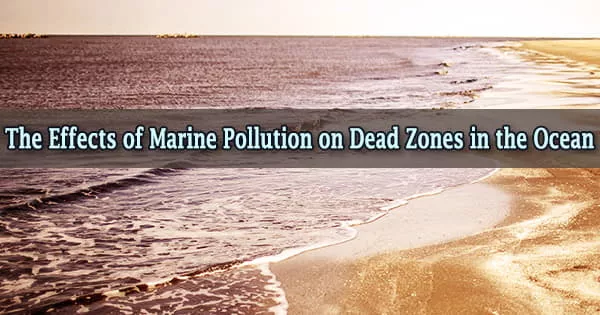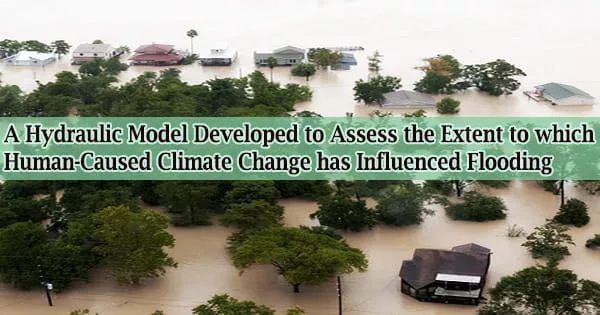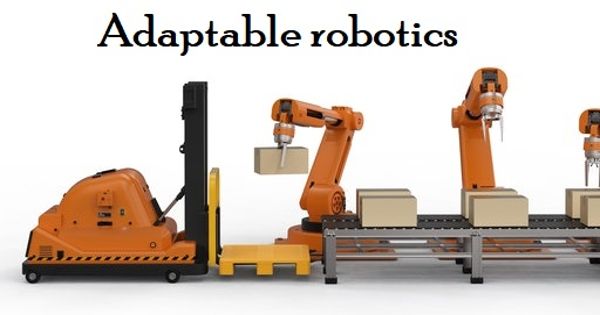Societies tend to focus on two solutions for reducing greenhouse gas emissions to slow climate change: improving energy efficiency and developing and utilizing renewable energy sources. From 2009 to 2016, a new study compared each state’s CO2 emissions with their investment in the two solutions. The authors discovered no statistically significant difference between improving energy efficiency and developing renewable energy; both resulted in some reductions in CO2 emissions when all societal sectors were considered, though renewable energy investment was slightly more impactful.
Humans have pumped enormous amounts of greenhouse gases, such as CO2, into the atmosphere over the last 150 years, warming the planet at an alarming rate. Societies tend to focus on two solutions for reducing greenhouse gas emissions to slow climate change: improving energy efficiency and developing and utilizing renewable energy sources. President of the United States Joe Biden’s climate agenda includes a large effort to upgrade buildings to be more energy-efficient, as well as a proposal to invest billions of dollars in clean energy research. But, do these strategies work as expected?
A new study by University of Utah researchers compared CO2 emissions in each U.S. state from 2009 to 2016 with their investment in the two solutions. The authors discovered no statistically significant difference between improving energy efficiency and developing renewable energy; both resulted in some reductions in CO2 emissions when all societal sectors were considered, though renewable energy investment was slightly more impactful.
Many energy analysts see emissions as a technical problem that must be solved technically; build more efficient vehicles, build homes that use less energy. What they don’t take into account is human behavior.
Lazarus Adua.
Two surprises were revealed by the findings. First, state policies aimed at assisting consumers in improving their energy efficiency had no effect on CO2 emissions. Rather, states with lower energy input per unit of economic output (per capita gross domestic product, GDP) emitted less greenhouse gas. Second, increased investment in renewable energy sources resulted in increased CO2 emissions in the residential sector. These results are evidence of a well-known phenomenon known as the rebound effect, which describes when people respond to energy savings by consuming more, effectively negating the benefit of CO2 reduction.
“Many energy analysts see emissions as a technical problem that must be solved technically; build more efficient vehicles, build homes that use less energy. What they don’t take into account is human behavior. If you have a hybrid vehicle, the money you save on gas may allow you to drive more “Lazarus Adua, an assistant professor of sociology at the University of California, Berkeley, was the study’s lead author. “My goal here is to alert policymakers to the fact that the rebound effect is a problem that must be addressed. You will not solve the problem if you only focus on improving efficiency and investing in renewables.”
The study was published in the journal Global Environmental Change. Karen Xuan Zhang and Brett Clark of the Department of Sociology at the U were co-authors.

Energy efficiency improvement and renewable energy production
The authors used two measures to assess each state’s investment in energy efficiency improvements. The first is the American Council on an Energy-Efficient Economy’s ranking of states in terms of policy initiatives aimed at improving energy efficiency in homes or other buildings. The second metric is the economic output of the state per British Thermal Unit (BTU) of energy consumed. This reveals how effectively the economy uses energy to generate each dollar of GDP. Adua and his team calculated the proportion of a state’s total energy consumption from renewable energy sources such as wind, solar, geothermal, or hydropower to assess renewable energy production.
They analyzed each solution’s impact on CO2 emissions across four sectors individually — residential, commercial, industrial, transportation — and the impact across all sectors combined.
The findings show that a 1% increase in economic output per BTU results in lower CO2 emissions in the residential, industrial, and transportation sectors, confirming that overall improvements in production efficiency benefit society. There is no rebound effect because individuals are unlikely to notice if they save money as a result of a more efficient economy. In contrast, a state’s energy efficiency policy scores had no statistically significant effect on CO emissions in any of the sectors studied. This is most likely due to their success in saving residents money, which may have encouraged them to spend more elsewhere, according to Adua.
The story of renewable energy was more complicated. When all sectors were combined, the study discovered that increasing renewable energy by 1% resulted in a 0.69 percent reduction in CO. The residential sector, on the other hand, had the opposite effect: a 1% increase in renewable energy led to a 0.36 percent increase in CO2 emissions. On the surface, the outcome appears to be counterintuitive. But it makes perfect sense to sociologist Adua.
“It’s unexpected, but given what I know about human attitudes toward consumption and resource use, it’s not all that surprising. When people believe they are already doing the right thing for the environment, they lose sight of other ways in which they are harming the environment. They may also feel justified in consuming slightly more. And before you know it, the solar panel’s benefit has been largely offset by increased consumption in other areas “Adua stated.
Adua and the authors’ next steps will be to delve deeper into some of the findings, with a focus on the residential sector. He’d like to conduct survey-type studies with respondents who have renewable energy at home versus those who don’t and gauge their attitudes toward general environmental protection with more funding. Adua is also working on a book that deconstructs the benefits and drawbacks of proposed climate change mitigation strategies, such as tactics to physically remove CO2 from the atmosphere.
Adua stated again that focusing solely on technical solutions will not solve the climate crisis. “We need to think about these solutions in a more holistic way; you have to think about restructuring society in ways that will make it more efficient overall,” Adua said. “When it comes to structural change, however, people simply think, ‘that will destroy our way of life.’ However, if we do not address this issue now, the environment will change our way of life for us. Perhaps not our generation, but our descendants’ way of life will be altered by the environment.”
















